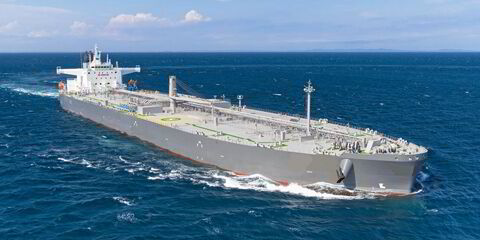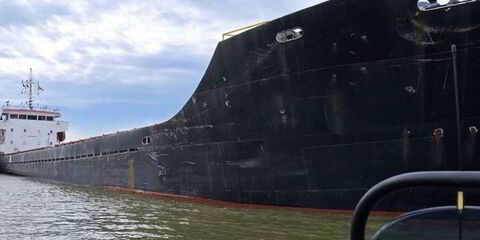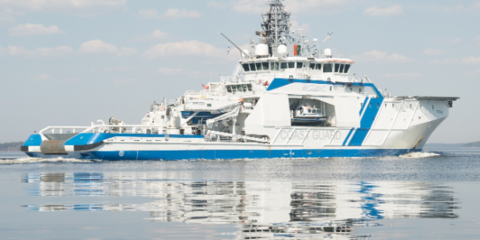Russia spent considerable time and money finding it last year; now the Kremlin probably wishes it would just disappear.
The alleged arms ship Arctic Sea resurfaced on Thursday as the latest published WikiLeaks documents tied Russian authorities to organised crime with a shipping connection getting top billing.
The 4,700-dwt general cargoship made headlines around the world in the second half of last year after it mysteriously disappeared in the Baltic Sea before being found by Russia’s Navy off West Africa three weeks later. With the prosecution of eight hijackers found onboard, Russia would have hoped the story would end there.

Not with the publication of the latest round of leaked US embassy cables on Thursday, however, as the UK’s Guardian newspaper once again raised the allegation that the 1992-built ship was being used to smuggle illegal weapons.
Jose ‘Pepe’ Grinda Gonzalez, a senior Spanish investigator, is alleged to have told US officials in Madrid in January that the curious case of the Malta-flagged ship represented “a clear example” of arms trafficking, with the upper echelons of Russian politics implicated.
The claim was made in a leaked cable in which Gonzalez, Spain’s national court prosecutor who has been investigating the Russian mafia for a decade, alleged wider collusion between the Russian government and organised crime syndicates in Russia which are said to do the Kremlin’s dirty work.
But the specific claim regarding the Arctic Sea was highlighted in the Guardian’s publication of the cable which refers to the Spanish investigator by the first part of his surname.
“Grinda said that according to information he has received from intelligence services, witnesses and phone taps, certain political parties in Russia operate “hand in hand” with OC [organized crime].
“Grinda further alleged that there are proven ties between the Russian political parties, organized crime and arms trafficking. Without elaborating, he cited the strange case of the ‘Arctic Sea’ ship in mid-2009 as “a clear example” of arms trafficking.”
Gonzalez is also alleged to have said Moscow’s officials had used organized crime gangs to aid gun-running to Kurdish groups “in an attempt to destabilse Turkey”.
When the Arctic Sea set off from Finland in mid July last year it was supposed to head to Algeria with a cargo of sawn timber. The allegation that it was being used to transport illegal weapons, allegedly Russian S-300 anti-aircraft missiles, to Iran was prevalent but was strenuously denied by Russian authorities.
The ship, which had 15 Russian crew, was boarded by hijackers off Sweden’s Oland Island on 24 July and taken through the English Channel, down the coast of France and Portugal and out into the Atlantic. Russian president Dmitry Medvedev hurriedly dispatched the country’s Black Sea naval fleet to find the ship, which it did around 10 August, hundreds of miles off Cape Verde.
Eight alleged hijackers were found onboard and, together with 11 crew members, were flown back to Moscow for interrogation. The ship remained under the control of the Russian Navy for some weeks before it eventually was allowed to be inspected by Malta, the flag state.
Maltese authorities declared they found no untoward cargo onboard. However, the very fact that Russia imposed itself on the incident despite the initial hijacking taking place in Swedish water, the ship being operated out of Finland and the flag state being Malta meant accusations of a cover-up of arms smuggling were never far away.
At the time of the incident the ship was in the fleet of Helsinki-based Solchart Management. Chief executive Victor Matveev was not contactable for comment on Thursday. The vessel has since been sold to Canada’s Great Lakes Feeder Lines where it operates under the same name.(Copyright)


